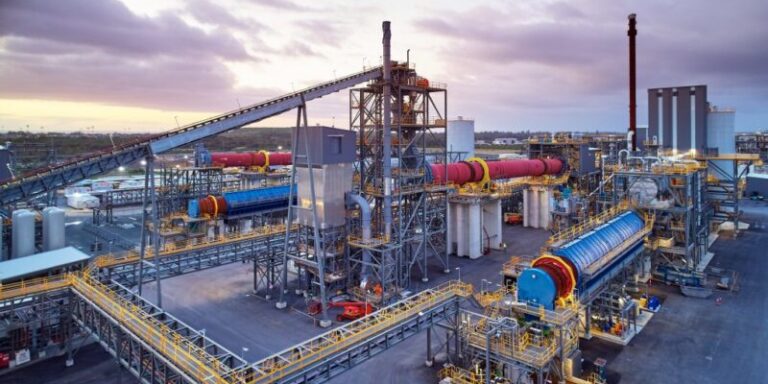
Japanese trading giant Sumitomo Corp has revised down its annual nickel output estimate for the Ambatovy project in Madagascar due to operational challenges and lower-than-expected prices.
Struggling to stabilize production levels and enhance profitability at Ambatovy, Sumitomo now anticipates an annual nickel output of around 30,000 metric tons for the fiscal year ending March 31.
This marks a decrease from its previous estimate of about 40,000 tons announced in November.
Chief Financial Officer Reiji Morooka disclosed that various equipment malfunctions during the October-December quarter, along with issues at the utility plant detected towards the end of last year, contributed to the downward revision.
Additionally, Sumitomo has adjusted its annual financial impact estimate from Ambatovy to a projected loss of 17.4 billion yen ($117 million), compared to the break-even forecast from November.
Morooka attributed this revision partly to the persistently low nickel prices.
Regarding the resolution timeline for the project’s issues, a Sumitomo official stated that clarity on the matter is currently unavailable.
Nickel’s significance as a key battery material for electric vehicles has long been recognized due to its ability to enhance energy density, enabling cars to travel longer distances on a single charge.
However, nickel producers are grappling with challenges, including Indonesia’s dominance in nickel supply and evolving battery technologies that reduce reliance on nickel.
Consequently, nickel prices have declined by approximately 40% over the past year, hovering around $16,000 per ton.
Sumitomo’s financial performance has also been affected, with a 13% decrease in net profit reported for the April-December period, primarily due to lower prices of coal and base metals.
Despite this, the company has maintained its full-year profit forecast through end-March at 500 billion yen, consistent with analysts’ expectations.
Sumitomo’s efforts to address operational issues at the Ambatovy project underscore the complexities faced by nickel producers amid market challenges, highlighting the importance of adaptability and resilience in navigating the volatile landscape of the global nickel industry.
Japanese trading giant Sumitomo Corp has revised down its annual nickel output estimate for the Ambatovy project in Madagascar due to operational challenges and lower-than-expected prices.
Struggling to stabilize production levels and enhance profitability at Ambatovy, Sumitomo now anticipates an annual nickel output of around 30,000 metric tons for the fiscal year ending March 31.
This marks a decrease from its previous estimate of about 40,000 tons announced in November.
Chief Financial Officer Reiji Morooka disclosed that various equipment malfunctions during the October-December quarter, along with issues at the utility plant detected towards the end of last year, contributed to the downward revision.
Additionally, Sumitomo has adjusted its annual financial impact estimate from Ambatovy to a projected loss of 17.4 billion yen ($117 million), compared to the break-even forecast from November. Morooka attributed this revision partly to the persistently low nickel prices.
Regarding the resolution timeline for the project’s issues, a Sumitomo official stated that clarity on the matter is currently unavailable.
Nickel’s significance as a key battery material for electric vehicles has long been recognized due to its ability to enhance energy density, enabling cars to travel longer distances on a single charge.
However, nickel producers are grappling with challenges, including Indonesia’s dominance in nickel supply and evolving battery technologies that reduce reliance on nickel.
Consequently, nickel prices have declined by approximately 40% over the past year, hovering around $16,000 per ton.
Sumitomo’s financial performance has also been affected, with a 13% decrease in net profit reported for the April-December period, primarily due to lower prices of coal and base metals.
Despite this, the company has maintained its full-year profit forecast through end-March at 500 billion yen, consistent with analysts’ expectations.
Sumitomo’s efforts to address operational issues at the Ambatovy project underscore the complexities faced by nickel producers amid market challenges, highlighting the importance of adaptability and resilience in navigating the volatile landscape of the global nickel industry.





